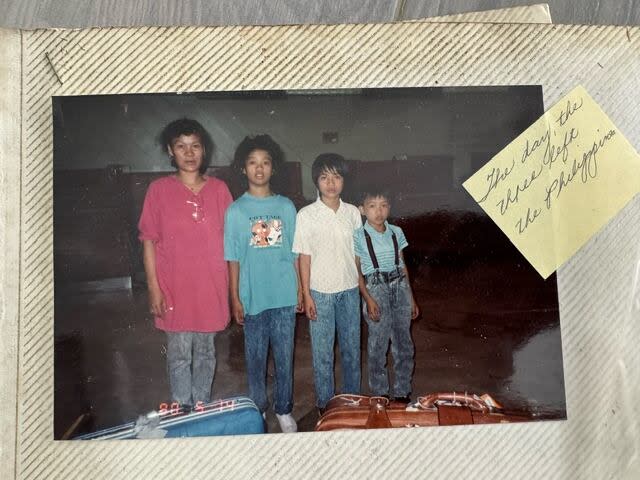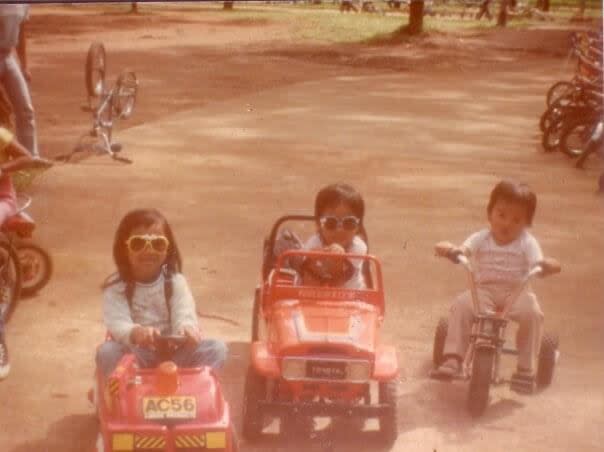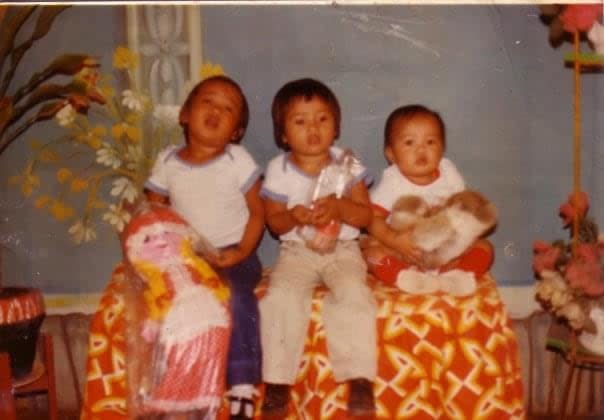Family kept apart celebrate new immigration rules but say it took too long

Evelyn de Vera left her home and loved ones behind in the Philippines when she went to Hong Kong in 1982 and then came to Canada in 1986 to become a caregiver and, ultimately, to look for a better life for her three children.
"It's the land of milk and honey," she said.
"As a mother who wants to give a better life for her children you do anything you can, even leaving them at such a young age."
It would be eight years before she would see her children again, something that had lasting impacts for all of them.
On June 3, the federal government announced a pair of pilot programs that will give some caregivers arriving in Canada permanent residence upon arrival, making it a little easier for families like the de Veras to be together sooner.
'You yearn for them'
De Vera left the Philippines to become a domestic helper in Hong Kong. It was there she learned about the opportunity to work in Canada. Leaving her children with her mother, she went to Calgary, Alta., where she became a nanny. The idea was she would eventually get permanent residence and be able to bring her children over to be with her.
But de Vera, now 70, said it wasn't an easy process.
She said she had to live with her employer for two years, volunteer and improve her English as part of her journey to permanent residence. She had to get permits if she wanted to volunteer and take a part-time job.

Liberty de Vera and her siblings spent eight years without their mother as she went in search of a better life for her kids. (Submitted by Liberty de Vera)
It's a story that's all too familiar to other caregivers who had to leave their children behind when they came to Canada, she said.
"We suffer," she said during an interview on CBC's On The Coast.
"Every night, before we go to bed, what do we do? We cry over our pillows thinking about [our children]."
It stung all the more because she was caring for someone else's children, longing for her own.

Liberty de Vera and her siblings in the Philippines. (Submitted by Liberty de Vera)
Liberty de Vera, 45, was about two years old when her mom left for Hong Kong and, subsequently, Canada.
"Growing up without parents, you visualize something about them; you idolize them. You want to be like them. You love them so much, you can't wait to see them. You yearn for them," she said.
Liberty didn't come to Canada until she was 10. Shortly after she arrived in Calgary, the family moved to Vancouver, de Vera said.
But by then, Liberty didn't really know her mother.
"There's just no emotions. There's no bond. You're alien [to] each other."
In the years that followed her move to Canada, Liberty said she went through bouts of depression and said she carries that pain with her to this day.
"[My mom] wasn't there for me. She wasn't there to guide me. We are still dealing with that, you know, trying to fix that bridge."

Evelyn de Vera, left, and her daughter Liberty are pictured on June 6, 2024. (Missy Johnson/CBC)
De Vera said that while coming to Canada afforded her family many advantages in some ways, if she could go back, she would have stayed in the Philippines with her children.
"The best thing I can give to my children is myself. We didn't think of that at the time," she said.
Program details
Past programs required caregivers seeking permanent residence to work full-time as live-in caregivers for a specific amount of time within four years of arriving in Canada before they could even consider applying for permanent residence status.
The Home Child Care Provider Pilot and Home Support Worker Pilot appears to require the equivalent of a Canadian high school diploma, a certain amount of English language skills, recent and relevant work experience and an offer for full-time care work.
To qualify for permanent residence, those interested must have work experience, pass a language test, complete an education assessment, and pay a $1,210-$1,465 Cdn fee, depending on work experience.
They do not need to live in their employers' homes.
Dependents, including spouses and children, qualify for permanent residence if they are processed on the caregiver's application as such.
The federal government said more information will be made available when the pilots fully launch.
Canada expects to admit more than 15,000 caregivers as permanent residents from 2024 to 2026.
Federal minister of small business Rechie Valdez said stories from caregivers across Canada prompted the government to implement these new programs.
"Generations of women and men have advocated for this important pathway and have cared for our families and loved ones here in Canada. Now is the time to return the care they deserve," she said in a news release.
Both mother and daughter are ecstatic that these new programs will help caregivers establish their lives here quicker and easier.
Liberty said they, along with other Filipino families, will celebrate these new rules at the Pinoy Festival, which honours Filipino culture, in Burnaby in a couple of weeks.
"We really want to say thank you to the government for acknowledging this now," she said.
"The biggest question is: What took so long?"
LISTEN | Evelyn and Liberty de Vera share their story

 Yahoo News
Yahoo News 
